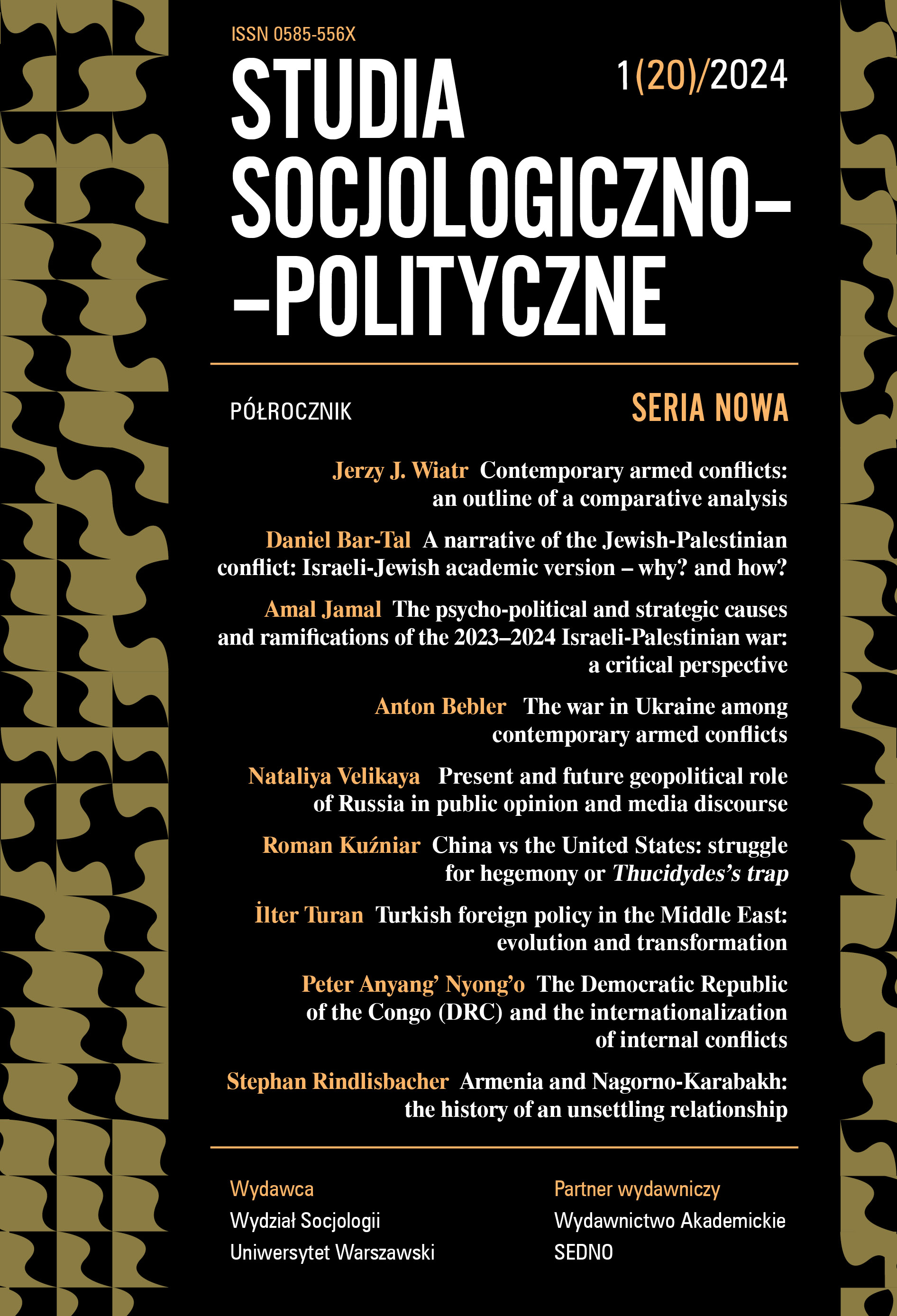THE DEMOCRATIC REPUBLIC OF THE CONGO (DRC) AND THE INTERNATIONALIZATION OF INTERNAL CONFLICTS
THE DEMOCRATIC REPUBLIC OF THE CONGO (DRC) AND THE INTERNATIONALIZATION OF INTERNAL CONFLICTS
Author(s): Peter Anyang NyongoSubject(s): Politics / Political Sciences, Politics, History, Political Theory, Civil Society, Governance, Diplomatic history, Economic history, Political history, Recent History (1900 till today), Special Historiographies:, Economic policy, Government/Political systems, International relations/trade, Developing nations, Politics and society, 19th Century, Post-War period (1950 - 1989), Present Times (2010 - today), Period(s) of Nation Building, Inter-Ethnic Relations, Geopolitics, Politics and Identity, Corruption - Transparency - Anti-Corruption, Peace and Conflict Studies, Asylum, Refugees, Migration as Policy-fields
Published by: Wydział Socjologii Uniwersytetu Warszawskiego
Keywords: civil wars; exploitation of natural resources; international actors and fragile states
Summary/Abstract: From the time it was colonized to the present day, the Democratic Republic of the Congo (DRC) has neither experienced democracy nor lasting peace and stability. Instead, it has all the qualitative attributes of a fragile state. Empirically, the beginnings of a fragile state are linked to rebellions which led to civil wars and thereafter took on a long-run trend with the capture and exploitation of resources. For example, diamonds in Sierra Leone, oil in Sudan and South Sudan and rare metals in DRC. Fragility stems from being in conflict repeatedly, a sign of a vicious cycle where conflict generates grievance and grievance generates further conflict. However recurring conflicts are also often driven by greed for resources whose control can fund a conflict ad infinitum especially if the resources are in demand globally. Hence the conflict becomes internationalized. The entry of international players is based on predatory opportunities to control commodity exports. Because the conflict also displaces people (and creates a rebellious diaspora), especially those with influence and money, these grievances fuel the discontent of diaspora which mobilizes funds to finance the conflict further.
Journal: Studia Socjologiczno-Polityczne. Seria Nowa
- Issue Year: 20/2024
- Issue No: 1
- Page Range: 163-170
- Page Count: 8
- Language: English

